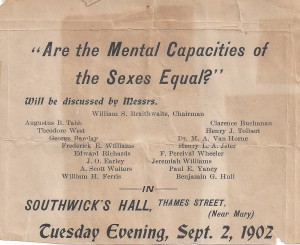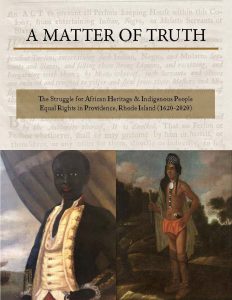The month of March marks Women’s History Month, and one of the most important milestones in the history of women in America is on August 18, 1920, when the 19th Amendment to the United States’ Constitution is ratified guaranteeing American women the right to vote.
Ironically, prior to the American Revolution, some free women in early America had property and voting rights within colonies such as New Jersey, but by the early 19th century, states had barred women from voting. The long, hard battle to fully enfranchise women in America had its historical roots in the Abolition of Slavery Movement before the American Civil War and the Equal Rights Movement that culminated in the passage of the 13th, 14th and 15th amendments to the Constitution immediately after the Civil War, that would advance political enfranchisement for all male citizens regardless of race. In its ranks were dedicated women who would progress from the Abolition Movement to the Suffragette Movement; notably Lurectia Mott, Elizabeth Cady Stanton and L. Maria Child who would fight for the end of slavery, but would also advocate for women’s rights – asking that they not be treated as property and have the basic right to vote. It is this fundamental principle that human beings, black and female, should not be treated as property that joined African American and women’s movements during the 19th and early 20th centuries.
 Here in Newport, Rhode Island on September 2, 1902 an African heritage men’s club came together to take on one of the most topical issues of the day to debate and discuss “Are the Mental Capacities of the Sexes Equal?” The Newport group was comprised of many of the leading professional men of color of their day including doctors, lawyers, businessmen, political officials and led by William Stanley Braithwaite, an acclaimed poet, author, and literary critic. Included among them were my grandfather and great uncle.
Here in Newport, Rhode Island on September 2, 1902 an African heritage men’s club came together to take on one of the most topical issues of the day to debate and discuss “Are the Mental Capacities of the Sexes Equal?” The Newport group was comprised of many of the leading professional men of color of their day including doctors, lawyers, businessmen, political officials and led by William Stanley Braithwaite, an acclaimed poet, author, and literary critic. Included among them were my grandfather and great uncle.
There are no extant minutes or meeting records to describe the discussion and if any consensus of opinion had been reached regarding mental capacities and sex. The influence of my grandmother and great-aunts, all strong, intelligent, educated and highly capable women lead me to believe that those men knew, long before they entered that meeting hall, what the answer was to that question. Perhaps the great 19th century Abolitionist and Women’s Suffrage Leader, Elizabeth Cady Stanton said it best:
“We hold these truths to be self-evident: that all men and women are created equal.”
– Elizabeth Cady Stanton
- Saving Old Glory - March 31, 2023
- Keith Stokes receives Outstanding Achievement in Leadership Award - December 22, 2022
- Harriet Jacobs - December 22, 2022


 Click on image to view pdf
Click on image to view pdf
March 9, 2015 at 1:27 pm
Keith, I enjoy your writings and wish you the best. I know the last several years have been difficult.
March 17, 2015 at 1:10 am
Thank You